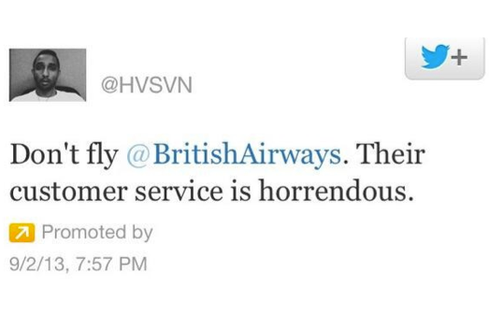Microsoft Woos Gmail Users
Outlook.com introduces a Gmail migration tool to attract unhappy Google email users.


10 Worst Social Media Meltdowns Of 2013
10 Worst Social Media Meltdowns Of 2013 (click image for larger view)
In early 2010, Google tried to accelerate the growth of Google Apps by launching Google Apps Migration for Microsoft Exchange, server software designed to help companies move data from Microsoft Exchange to Google Apps.
That was several months after Google launched Google Apps Sync for Microsoft Outlook to help Outlook users connect to Google Apps as a back end. That same year, it also debuted Google Apps Migration for Lotus Notes and Connect for Blackberry Enterprise Server to make it easier for users of those systems to "Go Google."
On Wednesday, Microsoft returned the favor, adding another front in its broad counterattack on Google and on the threat ad-funded software poses to its business model. It introduced a service to simplify the process of importing Gmail messages into Outlook.com, the company's successor to its Hotmail service.
Both Microsoft Outlook and Google Gmail have more than 400 million users worldwide.
[Will Google advertisers love or hate this change? See Gmail Shows Images By Default.]
Naoto Sunagawa, a senior program manager lead at Microsoft, explains in a post that connecting a Gmail account to an Outlook.com account via OAuth requires only a few steps. "This will import your Gmail emails into your Outlook.com inbox and, because you've connected both accounts, your Google contacts will automatically appear in Outlook.com," he said.
Sunagawa suggested that Microsoft's reason for introducing a Gmail migration tool is "growing frustration with outdated email services," specifically Gmail, a conclusion supported by a ZDNet opinion column, "The Case Against Gmail." Sunagawa also cited an Ipsos poll indicating that almost a quarter of consumers would switch email providers if it were easier to do so and that 70% don't want ads interfering with their email experience.
Gmail's most contentious feature is its automated scanning of message text to serve ads, which Google would presumably argue enhances Gmail rather than interferes with it. Nonetheless, Microsoft has made much of what it characterizes as Google's intrusive behavior in its ongoing "Scroogled" ad campaign, which has attacked Google for paid inclusion in shopping search results, for scanning Gmail messages to serve ads, and to disparage Chromebooks. The company is even selling anti-Google merchandise on its website.
This is but a small part of a larger lobbying campaign in the US and Europe to convince lawmakers that Google holds an anticompetitive monopoly on search advertising that must be regulated. On Thursday, FairSearch Europe, a group composed of many Google competitors including Microsoft, announced that a study it commissioned concluded that Google's most recent proposal to settle European objections to its business practices is unlikely to restore competition in the search market.
Over the summer, FairSearch attacked Google over its distribution of Android, claiming that distributing Android for free is anticompetitive. At the time, Groklaw editor Pamela Jones said the FairSearch complaint represented "an attack against the Open Source development model itself." She characterized it as "part of a coordinated smear campaign against Google."
Nonetheless, Google almost certainly will be forced to make some changes to accommodate its critics. Late last month, the Dutch Data Protection Authority concluded that Google's practice of combining data from its various services violates the country's data protection law. It remains to be seen whether Google will bend so far that it disrupts its stride. Whatever the outcome, Microsoft appears to be ready to pick up the pieces.
Thomas Claburn is editor-at-large for InformationWeek. He has been writing about business and technology since 1996 for publications such as New Architect, PC Computing, InformationWeek, Salon, Wired, and Ziff Davis Smart Business. He is the author of a science fiction novel, Reflecting Fires, and his mobile game Blocfall Free is available for iOS, Android, and Kindle Fire.
IT groups need data analytics software that's visual and accessible. Vendors are getting the message. Also in the State Of Analytics issue of InformationWeek: SAP CEO envisions a younger, greener, cloudier company (free registration required).
About the Author
You May Also Like






